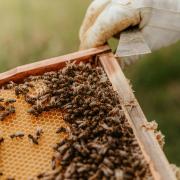
Coral Bleaching is the New Hair Bleaching
When we think of bleaching we think of using bleach to clean our toilets or to lighten our hair, but recent oceanic studies have shown the lightening of coral to become more increasingly common in the North East of Australia and the Pacific Ocean.
The result of coral bleaching is that the vibrant, electric colours of orange, red and yellow hues we envision when we think of coral, is then replaced with the snow white placidness of bleaching which sucks every fragment of colour from the reefs.
How is this done?
Algae (also known as zooxanthellae) and coral work simultaneously for optimum living standards; algae clings to the tissues of coral which gives it its exotic shades and the coral is the main food source for the algae which gives it the necessary nutrients in order to survive. However, the process of coral bleaching begins when the algae leaves the coral which takes the colour away from it, hence the plain white appearance.
What Causes Coral Bleaching?
When interviewing aspiring environmental geologist Jaye Rana, I asked what are the main causes of coral bleaching she stated that “the main cause of coral bleaching is global warming, in particular, the rising of global sea temperatures. However, there have been incidents where sea temperatures have decreased and corals have been bleached, therefore due to the cold stress, have been more prone to diseases, thus increasing their mortality rate.” Additionally, through my research I discovered that coral bleaching may also occur to exposure of sunlight which may increase water temperatures and cause coral bleaching but also in naturally low tide areas where there is more air exposure.
How Can We Prevent Coral Bleaching?
Once again I asked Jaye Rana how can coral bleaching can be prevented? She responded with “The main way is being more aware that it is actually happening and is happening quicker than we anticipated. It’s not always the most known ways of trying to reduce our carbon dioxide atmospheric concentrations but I would say we need to make a direct change to the way we impact and affect our oceans. Things such as oil spillages, over-fishing to compensate for our ever growing population and the reduced reliance on fertilisers should slowly but surely help in the prevention of coral bleaching before it is to a non-reversible stage.”
So to conclude, please be aware on the increasing environmental issue of coral bleaching and where you can try to reduce the use of fertilisers that contribute to this.
Sophia Zenonos. The Chalfont’s Community College.


























